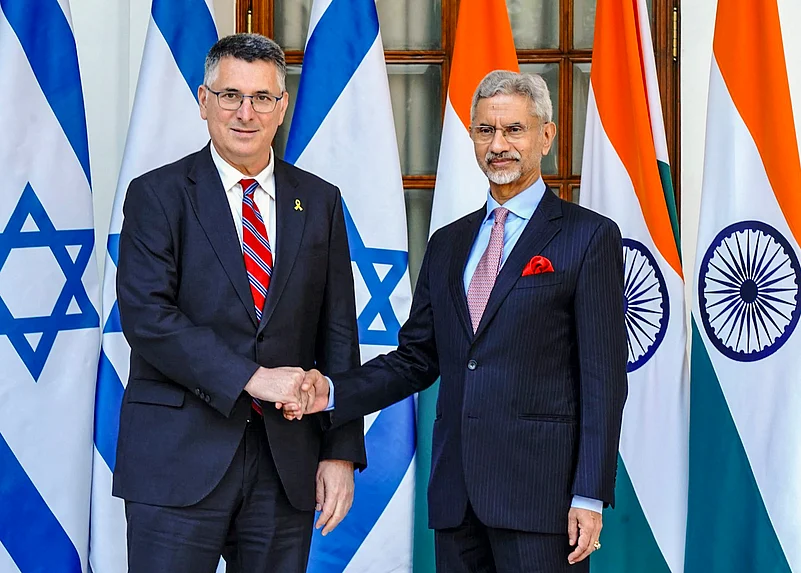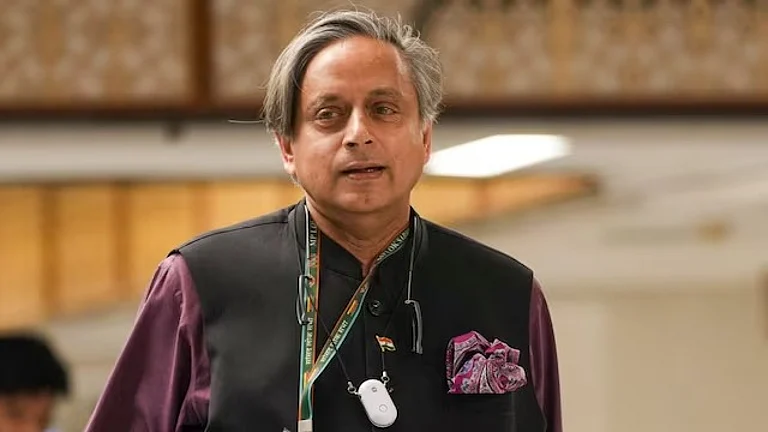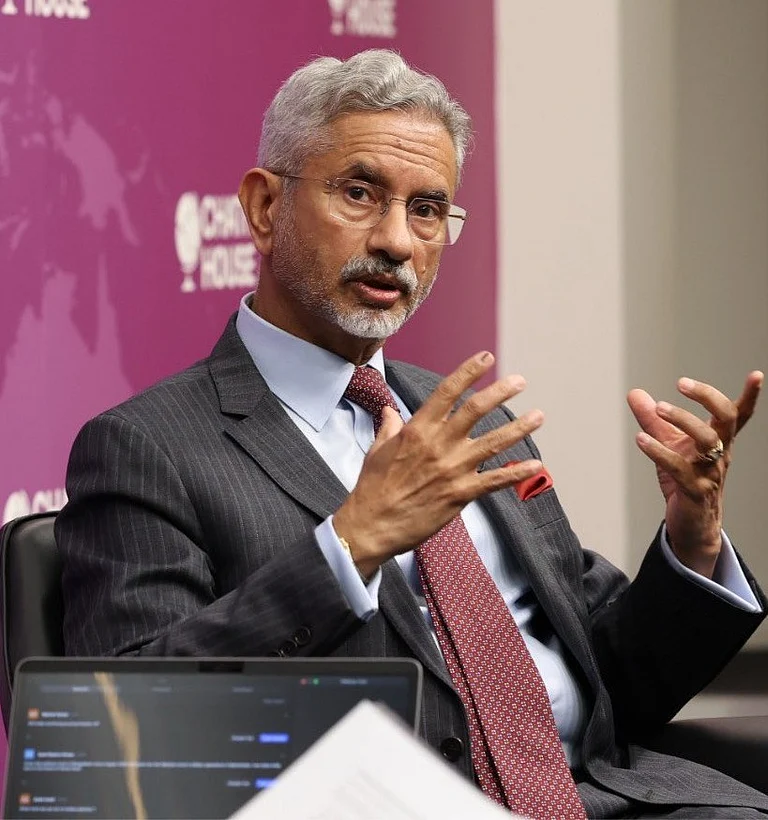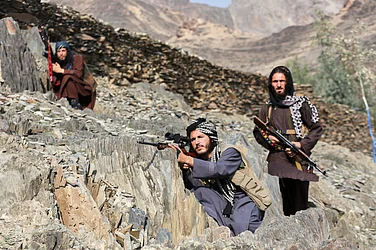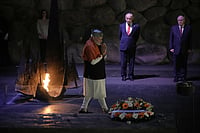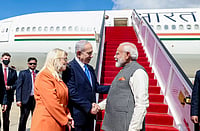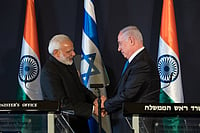
Israel’s Foreign Minister, Gideon Sa’ar, is on a three-day visit to India.
Israel is hoping to further develop its growing bilateral relations with India.
Prime Minister Modi was among the first world leaders to condemn the October 7 Hamas attack on Israel in 2023.
Israel’s Foreign Minister, Gideon Sa’ar, on a three-day visit to India, held bilateral talks with External Affairs Minister Subramanyam Jaishankar on Tuesday. The buzz is that Prime Minister Benjamin Netanyahu may also visit India before the end of the year. However, neither side has confirmed the visit so far. Sa’ar will also meet with NSA Ajit Doval and call on Prime Minister Narendra Modi. He leaves New Delhi tomorrow.
With a fragile ceasefire in place in Gaza, Israel is hoping to further develop growing bilateral relations with India, one of the few countries of the Global South where Israel is welcomed with open arms. Prime Minister Modi was among the first world leaders to condemn the October 7 Hamas attack on Israel in 2023. The world’s sympathy was with Israel.
But as the war progressed, and Israel’s indiscriminate bombings not just destroyed the strip but led to the death of over 67,000 people, mostly women and children, international sympathy for Israel as the victim of terrorism vanished. The country has lost considerable goodwill around the world, particularly among nations of the Global South
“India and Israel have a strategic partnership, and particularly in our case, that term has a real meaning. We have stood together in times of testing. And we have created a relationship with a high degree of trust and of reliability, ‘’ Jaishankar said in his opening remarks at the meeting, where he welcomed Sa’ar warmly and mentioned that it was the visitor’s first visit to India.
“Our two nations face a particular challenge from terrorism. It is essential that we work towards ensuring a global approach of zero-tolerance towards terrorism, in all its forms and manifestations,’’ Jaishankar added. India has welcomed the US peace plan and hopes that it will pave the way for permanent peace in the region.
India and Israel are hoping to further strengthen bilateral cooperation. The two countries recently signed a Bilateral Investment Agreement. Jaishankar stated that India and Israel have a strong record of collaboration in agriculture and innovation, which has also extended to semiconductors and cyberspace.
“That has become more relevant now. We are hosting the AI Impact Summit next year in February in India and look forward very much to Israel’s presence,’’ Jaishankar said. Indian workers are also working in Israel. This happened after Israel decided to stop employing Palestinians, who earlier did much of the heavy lifting in the construction sector.
“Given our strategic cooperation, an exchange of perspectives on regional and global issues also holds great value,’’ the minister added.
At the G20 summit in Delhi, the ambitious India-Middle East-Europe Economic Corridor (IMEC), a multimodal connectivity project, was announced with much fanfare. This would connect India and Europe via the West Asian region. With the signing of the Abraham Accords, leading to the normalisation of Israel’s ties with both the UAE and Bahrain, expectations were that Saudi Arabia and the rest would follow, leading to an economic boom in the region. India has excellent ties with the Gulf states, and a connecting corridor would have given a significant boost to trade not just with West Asia but also with Europe. However, the events of October 7 put all this on hold. It will take a long time to revive this, as the focus for the Gulf countries at the moment will be reconstruction of Gaza.







